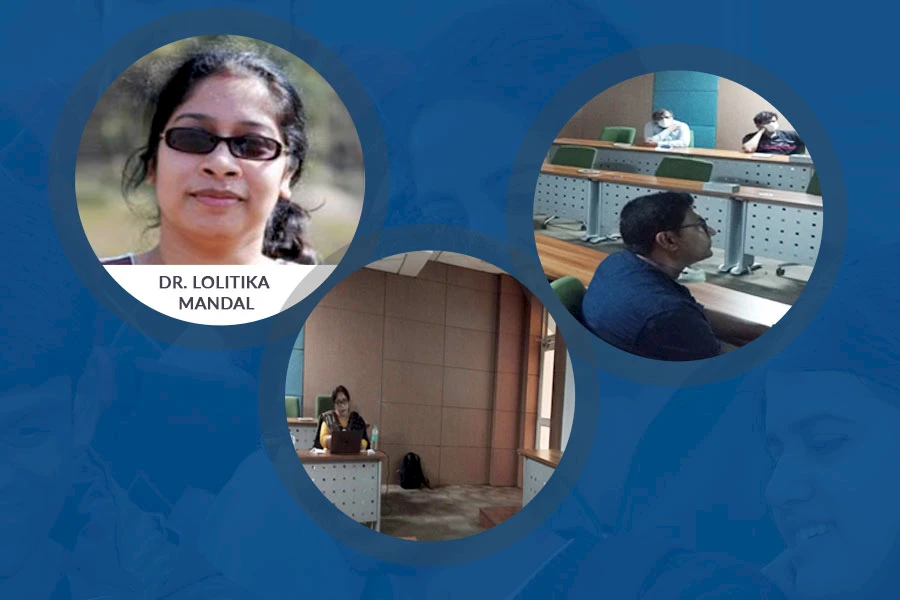Department of Life Sciences conducted a seminar on 'Blood cell development: Lessons learned from Drosophila' by Dr. Lolitika Mandal
The Department of Life Sciences conducted a seminar titled 'Blood cell development: Lessons learned from Drosophila' by Dr. Lolitika Mandal, Associate Professor and DBT/ Wellcome -Trust Indian Alliance Senior Fellow, Indian Institute of Science Education and Research, Mohali on March 21, 2022, from 4 PM to 5 PM.
Studies in the last decade have revealed the resounding similarity between Drosophila and vertebrate blood cell development or hematopoiesis. Employing this invertebrate model, we have discovered several signaling networks essential for stem cells, blood progenitor and their niche interactions.
Our group has made seminal contributions towards understanding stem cells and niche biology in the last ten years. We have demonstrated hematopoietic stem cells in larvae and active sites for hematopoietic activity in the adult Drosophila (Developmental Cell, 2015; eLife, 2016). In the process of uncovering the new molecular basis of hematopoietic processes, our group revealed that the origin, maturation, expansion, and homing of precursors are conserved between the fly and vertebrates. Employing molecular genetic approaches, we have illustrated that the stem cell niche can gauge an animal's physiological state before instructing the stem cells (Development, 2019). We have unraveled how metabolic cues and intrinsic signaling facilitate blood progenitor differentiation (eLife, 2020).
We have recently tried to understand how the ongoing hematopoiesis can be jacked up to emergency mode during infection. This transition is essential to generate lots of White Blood cells (WBC) to fight infection. Our understanding of the molecular players essential for this switch to emergency hematopoiesis is far from complete.
Since the blood development in fruit flies has considerable similarities with mammals, we have used this model to understand how this transition to emergency mode is achieved during infection. These results and other findings from our laboratory will be discussed.

Share this: